- Blogs
- 3 Minute Read
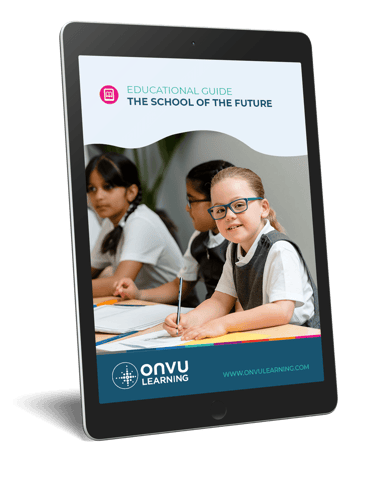

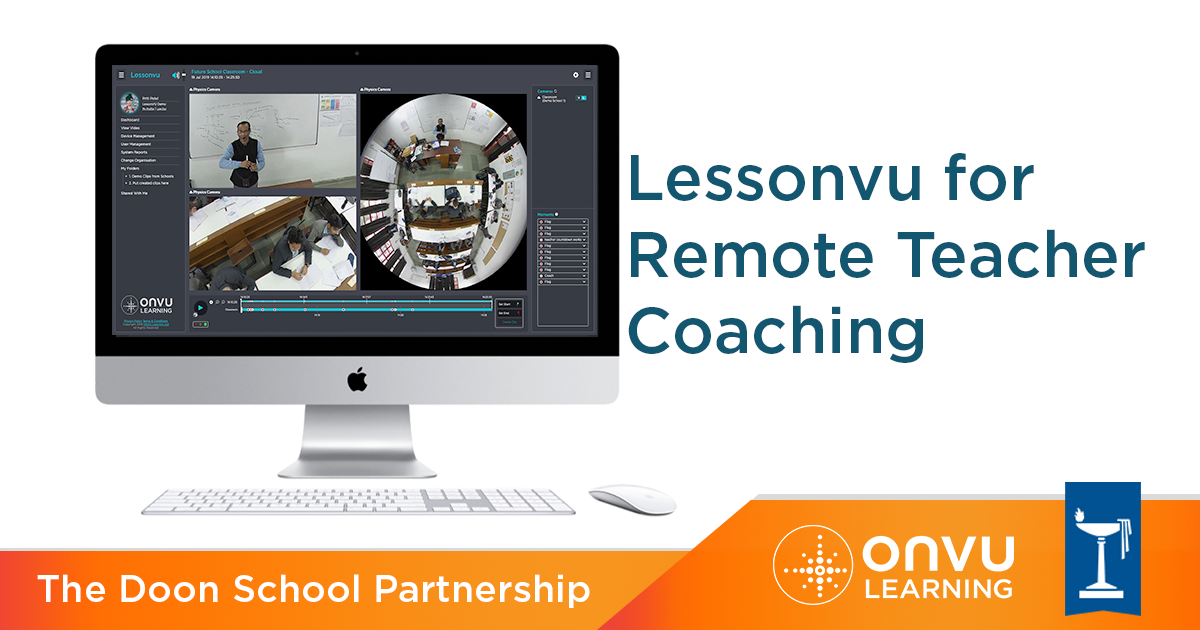
How do you improve your teachers? As we mentioned in our last blog, The Doon School in India chose to work with ONVU Learning and offer two of their teacher's remote international coaching, backed up with discreet 360-degree video footage from their classrooms for lesson observation and self-reflection on their own practice.
But how can you ensure that this is successful? Our work with The Doon School and other schools across the UK suggests the following four ideas are vital.
1. Mutual trust
Lesson observations have a poor reputation among many teachers because they are used often to rate teachers and report these grades back to school leadership, or to check off a long ‘tick-list’ of activities that the observer thinks should be present in each lesson.
Coaching is a totally different process in that it is there solely to help the teacher improve, with both coach and teacher being honest and open in their discussions, building a relationship of trust and collaboration.
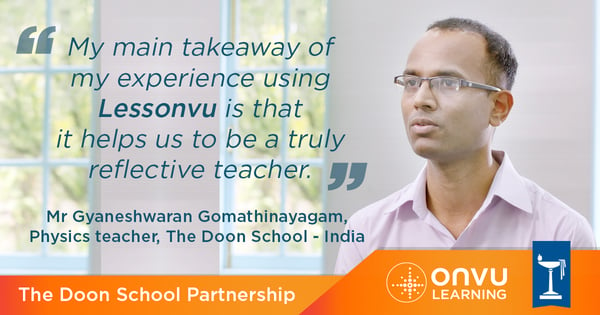
Coaching delivers much more than just discussing a lesson with a fellow teacher when it is structured. Dr Sean Warren, the coach who worked with The Doon School, uses his own ALIGN methodology – this uses the idea of ‘Professional Noticing’ to explore the different layers of interaction that take place in the classroom. Teachers who have been introduced to this methodology can also better reflect on their lessons once the coaching programme has finished. ALIGN introduces a whole new language and takes teachers on a journey of self-discovery, helping them see and positively digest classroom scenarios in ways which they were not aware of before. A phrase that we like to use is ‘telling teachers where to look, but not telling them what to see’. An online course version of the ALIGN Methodology is underway, so keep in touch with ONVU Learning and we will let you know once it’s been launched.
3. Clever use of technology
While coaching can take place without video footage of the lesson, it is incredibly powerful to be able to review critical incidents in a lesson from different perspectives in an objective way. ONVU Learning’s 360-degree cameras and high-quality microphones are installed in the classroom permanently, meaning that every aspect of a lesson can be captured discreetly and without interruptions. Video footage offers the ability to retrospectively refer to the footage, wearing a ‘fresh pair of eyes’, and that combined with the full 360-degree coverage of the classroom helps teachers to be more explorative and see the real picture. Technology can be great as far as it’s used in a way to improve our lives – to make a difference.
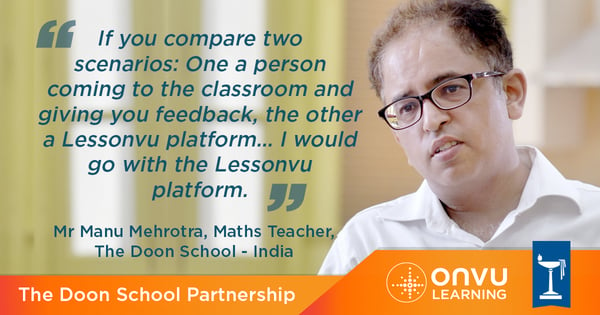
Improving teaching takes time, and it is important for the teacher being coached to be able to apply new ideas to a class and then discuss the impact of this with their coach. Dr Warren typically works with a teacher for several months to embed change and follow up on results. You can see in The Doon School case studies how the teachers were able to change aspects of their practice, from questioning to welcoming students, to even where they stood in the classroom… and then reflect on the impact with Dr Warren.
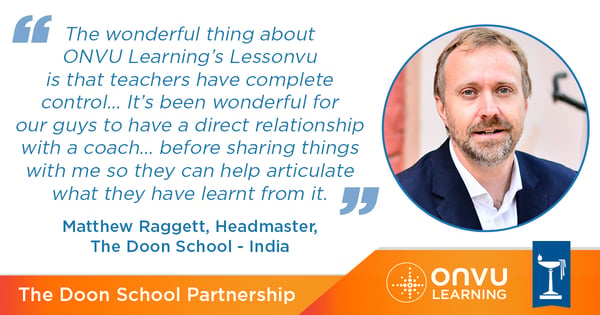
“I see huge benefit from Dr Warren observing my classes and helping me to notice things which could easily be ignored in the moment-by-moment decision-making.”
Mr Gyaneshwaran Gomathinayagam, Physics teacher, The Doon School
If you would like to know more about how ONVU Learning can help your school improve its teaching and learning, get in touch with our team now.

The School of the Future Guide is aimed at helping school leaders and teachers make informed choices when designing the learning environments of the future using existing and upcoming technologies, as they seek to prepare children for the rest of the 21st century – the result is a more efficient and competitive school.
KEEP IN TOUCH WITH ONVU LEARNING AND RECEIVE THE LATEST NEWS ON EDTECH, LESSON OBSERVATION, AND TEACHER TRAINING AND DEVELOPMENT.